International Relations
Relations across the UK, Europe and globally are frequently changing, and have done so across our history. How these relations are recorded, monitored and treated are discussed in the collection of articles and podcasts here. The very concept of international relations is explored as are when boundaries and discussions between states and groups started to matter. What are the procedures, protocols and outcomes of a world according to the history of international relations are all under scrutiny?
Sort by:
Date (Newest first) | Title A-Z
Show:
All |
Articles |
Podcasts |
Multipage Articles
-
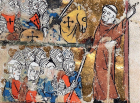
The First Crusade, 1095–99
ArticleClick to view -

History Abridged: American Policy: theory and practice over 200 years
ArticleClick to view -

Film series: Power and authority in Germany, 1871-1991
ArticleClick to view -

Berlin and the Berlin Wall: on-demand short course
Multipage ArticleClick to view -
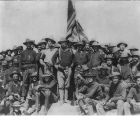
The Spanish-American War revisited: rise of an American empire?
ArticleClick to view -

Evelyn Waugh’s books on the Italo-Ethiopian War, 1935–36
ArticleClick to view -

My great-grandfather and the Italian Campaign
ArticleClick to view -
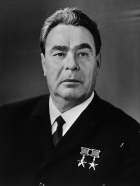
What did ‘Mature Socialism’ mean for the Soviet Union?
ArticleClick to view -

The rise and fall of Nauru
ArticleClick to view -
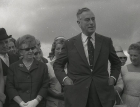
Mountbatten in retirement: the abortive trip to rebel Rhodesia
ArticleClick to view -

Film: Rethinking the origins of the Cold War
ArticleClick to view -

Tourism: the birth and death of the little Welsh town?
ArticleClick to view -

My Favourite History Place: the Berlin Wall
ArticleClick to view -

The Duchy of Courland and a Baltic colonial venture across the ocean
ArticleClick to view -

From Lithuania to Lancashire: life and death in the pursuit of freedom
ArticleClick to view -

How Sweden almost became a nuclear-armed state – and why it didn’t
ArticleClick to view -

Flight from Kabul: a historical perspective
ArticleClick to view -

Sweden’s forgotten revolution
ArticleClick to view -

The cultural biography of opium in China
ArticleClick to view -
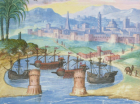
History Abridged: The City of Alexandria
ArticleClick to view

